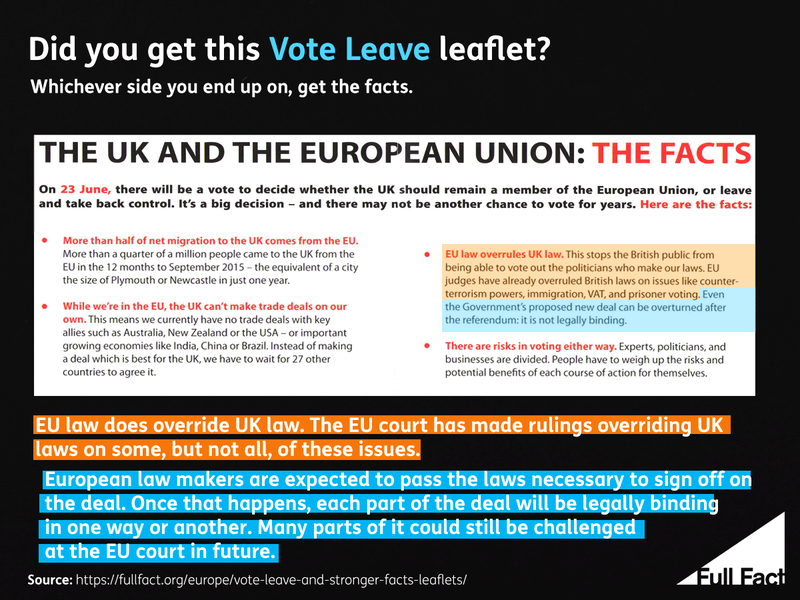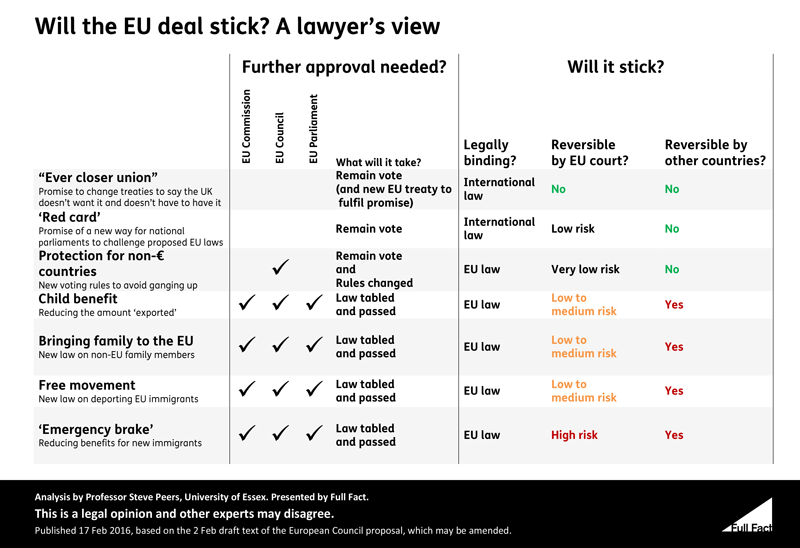It’s correct that EU laws in areas for which the EU is responsible override any conflicting laws of member countries.
That doesn’t mean that the people who make all our laws are EU politicians, as the EU’s lawmaking powers don’t cover everything. A law saying that the NHS should charge fees, for example, could only be passed by MPs who we can vote out. It’s also worth knowing that the European Parliament now has equal say in most major EU laws, and the UK provides around 10% of its members.
EU judges have made rulings that overrode British laws on immigration and VAT.
"Court of Justice of the European Union"
The Court of Justice has a judge from each EU member country. As the top court of the EU, it can give judgments about the legality of EU action and the compatibility of national action with EU law. There is also another EU court, the General Court, which has specialist responsibilities.
It’s not correct that they have done so when it comes to prisoner voting, though. The European Court of Human Rights has said that the British ban on prisoner votes should be changed, but it isn’t part of the EU, and its 2005 decision hasn’t led to a change in the law here.
The EU court did made a judgment about a French prisoner who wanted to vote for the European Parliament that might have implications for the ban as it applies to those elections, but the UK Supreme Court’s decision that EU law doesn’t help prisoners who want to vote for their MEP stands for now.
The court has some influence on counter-terrorism in terms of rules on collecting personal data, but it’s safe to say that the situation isn’t as simple as presented here. As the Court of Appeal has said, “EU law has not harmonised the law on access to communications data by the police or intelligence services”.
As for the several different parts of the government’s EU deal, they’ll all be legally binding in one way or another, assuming politicians pass some necessary laws. Those laws could be challenged in the EU court. Here’s one view on how likely the different bits are to be overturned there.

